I tried the Zoe nutrition programme – it told me exactly what I was doing wrong
If you haven't heard of the Zoe programme, where have you been?

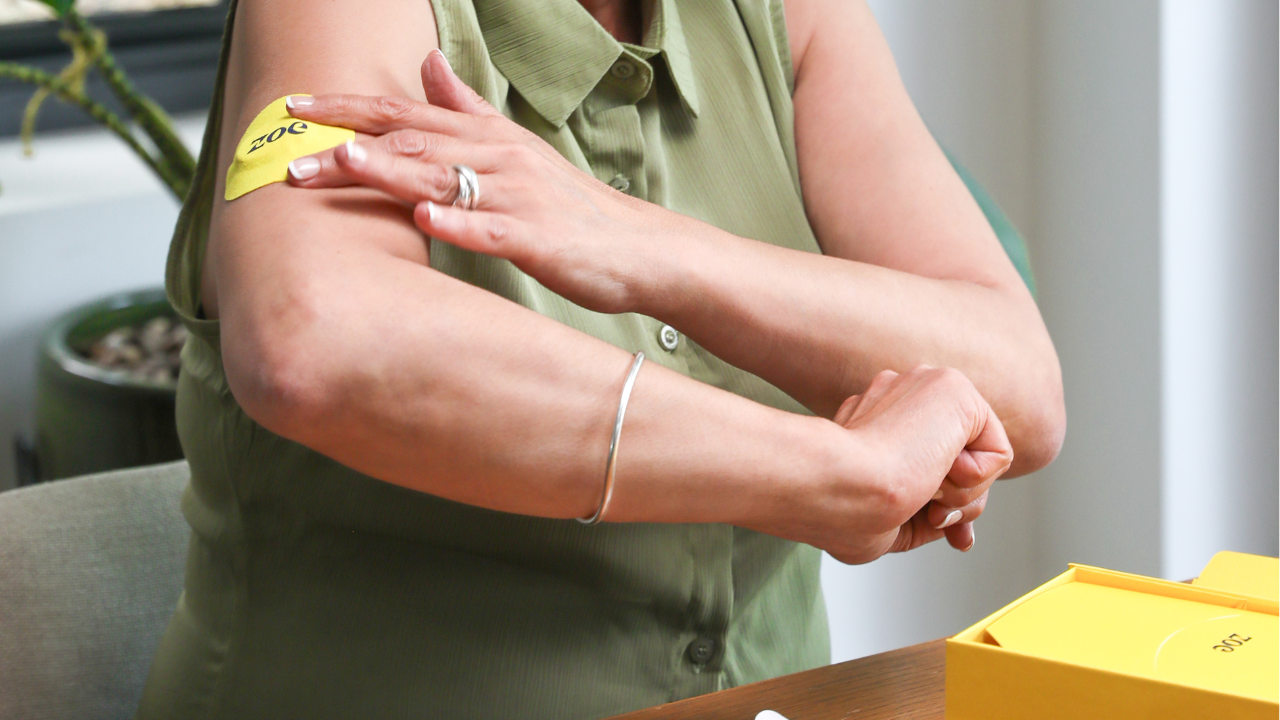
After such an increase in popularity, there's no doubt that more and more people are turning to wellness technology, including the best smart rings and the best sleep trackers. However, programmes that revolve around personalised nutrition tests are particularly sought-after, and the Zoe nutrition programme is no exception. Whether you've seen it pop up on Instagram or noticed the gut health shots in M&S, we've all heard of it. The brand's marketing has been beyond impressive, and success stories have reached those far and wide.
To find out more, I knew I had to give the programme a go. Despite eating relatively well and keeping an eye on my consumption levels, I'm always eager to explore wellness services that provide personalised results. The Zoe programme does exactly this, and despite having an exceptionally high price point, I was enticed to investigate its accuracy.
Keep reading to find out my thoughts on the Zoe testing process, as well as my results and app experience.
Testing
Unlike a lot of other personalised nutrition testing kits, the Zoe tests felt extremely comprehensive. I personally think this is a good thing due to the attached price tag, and you really feel as if you're going to find out a lot about your body.
Once the semi large yellow box arrived on my doorstep, I uncovered three separate test kits. These included a gut health test, finger prick test and a blood sugar sensor, and to my relief, in depth instructions and guidance on how to carry out each one. As I had done a bit of research before the tests arrived, I was quite familiar with how it all worked, but was still pleased that the process appeared relatively simple.
If you're unaware, the gut health test collects a stool sample to examine the diversity of the gut microbiome. The finger prick test collects a small sample of blood to check blood fat analysis, a reliable way to measure how quickly fat is cleared from the blood after a meal. These tests have to be carried out and sent off over the course of one day. However, the app was brilliant at notifying me how and when I should do this.
Now, if you've done your own research, you would have heard about the infamous blue cookies. There are two sets of cookies included (the lunch cookies are the blue ones) which need to be eaten at certain points throughout the testing day. These help the the blood sugar and blood fat tests to collect accurate results, as well as measuring the speed of digestion and gastric emptying. Once you then *ahem* pass the blue food dye, you then alert the app of how quickly you've digested the cookies. It's as simple as that!
Get all the latest news, reviews, deals and buying guides on gorgeous tech, home and active products from the T3 experts
The blood sugar sensor is the longest part of the testing, and required wearing a continuous glucose monitor (CGM) on my arm for 14 days. This allows the app to gain real-time insights of how blood sugar levels fluctuate, depending on what kind of foods have been eaten. It should be noted that despite there being a tiny (and I mean tiny) needle involved, I didn't feel a thing when attaching it. It was also exactly the same with the finger prick test.
Before testing commenced, I was invited to a quick meeting with one of Zoe's nutritionists who explained the process further and how to take part in each test. I thought this was a huge valuable part of the experience, and it provided the perfect opportunity to ask any questions and receive a personal answer.
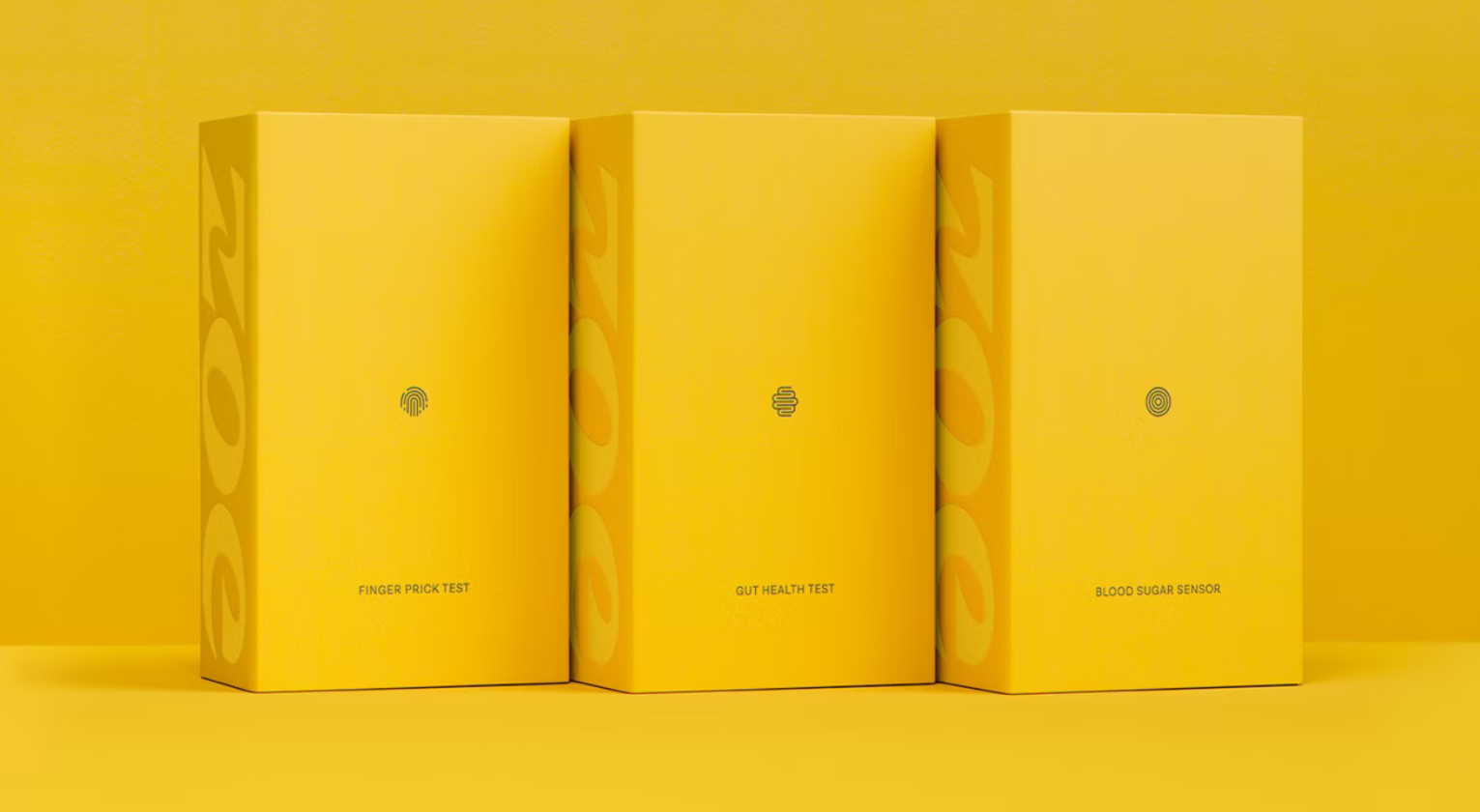
One thing I would say is that I didn't enjoy having to 'scan' my blood sugar sensor every time I wanted to read the results. I recently tried the Lingo Biosensor (read about our Editor-in-Chief's experience if you're interested) which continuously logs readings without having to be scanned. This variation just comes down to Lingo and Zoe using different CGMs, but it was frustrating having to transition between the effortless Lingo biosensor to one that needed more attention.
Either way, I found the Zoe blood sugar sensor stayed on my arm securely for the two week period, and I didn't even notice it was there for the majority of that.
It should also be noted that those with certain health issues are unable to take part in the Zoe study, as mentioned on the website. This includes people with chronic health conditions, such as coeliac disease and diabetes. It's also unsuitable for those with an eating disorder or a previous history of one.
Results
Those two weeks of waiting for my results combined a feeling of dread, doubt and intrigue at the same. I was interested in what the programme had to say, whilst remaining slightly sceptical at the same time. At one point, I woke in the middle of the night worried the tests would tell me I had the gut health of 105 year old woman who was about to drop down dead.
However, when the email finally came through to say the results were ready, they were a lot more positive than I initially expected. Firstly, it took around two weeks from removing my blood sugar sensor for the results to come back. This was a lot shorter than I was warned, with Zoe stating it can take up to six weeks for the lab to process each sample.
Don't get me wrong, I do keep a close eye on what I eat, but I was anticipating my results to be worse than they were. My blood sugar control and blood fat control were good, as was my gut health. My food diary score could have been higher, but I was expecting it to be a slightly lower due to my testing days being more exuberant than normal. Either way, it gave me a great place to start and I was excited to see where things would go from there.
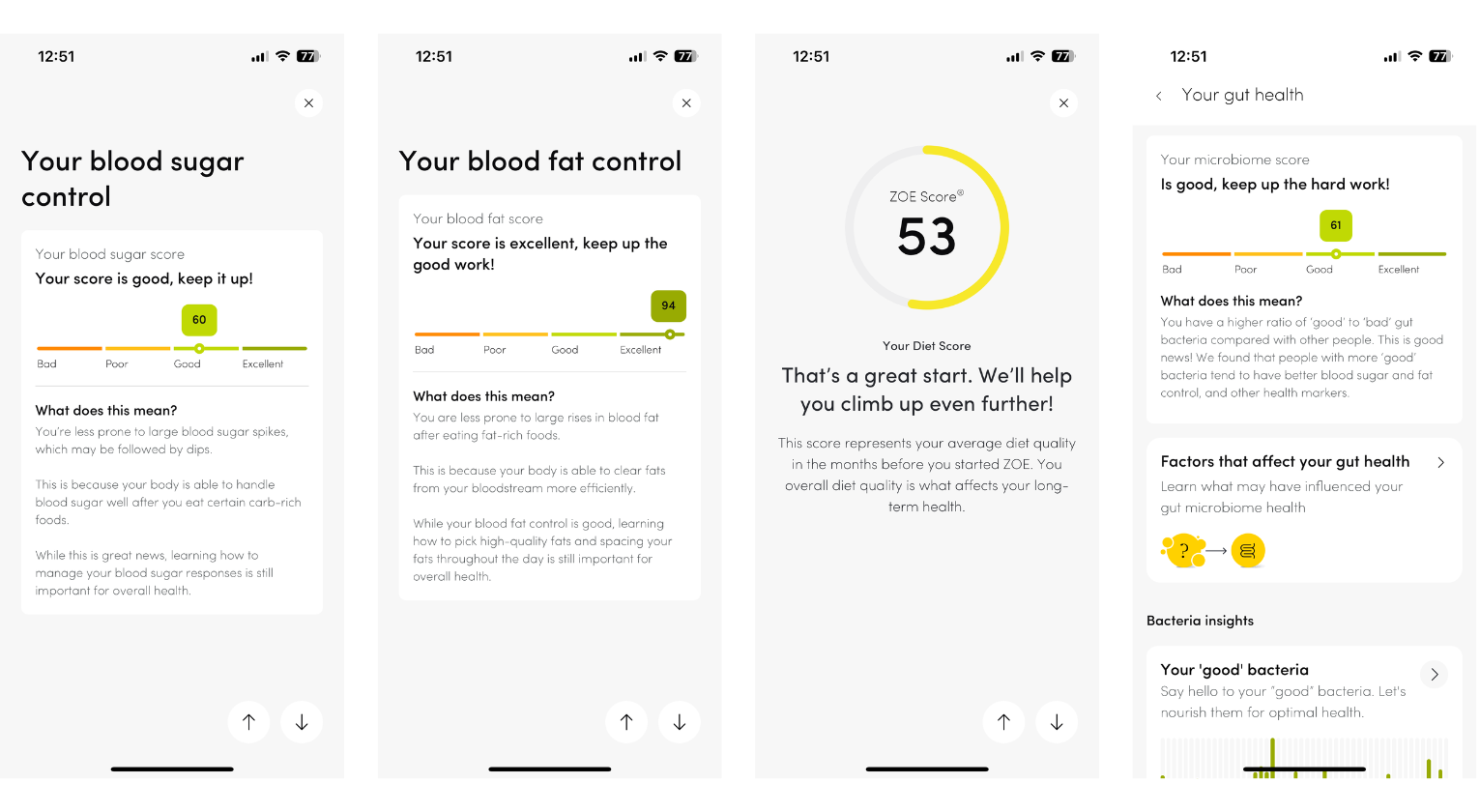
App
The Zoe app is what impressed me the most when it came to the entire programme. Once my results were logged and analysed, it began providing me with personalised food recommendations and 'lessons' on what worked well for me and my body. For example, even though my gut health came back as good, it told me that my go-to plain porridge in the mornings wasn't boosting my digestion in the right away. The app then suggested a variety of nuts and fruits to add, all of which would promote the ratio of good gut bacteria to bad gut bacteria. I'd always avoided nuts to keep my calorie count down, but this was actually hindering my gut more than I'd anticipated.
I also loved how the app would generate a daily score from 0–100 based on my food choices, using a traffic light system to indicate which foods are good or bad. This made it easy to keep track of what was working for me, and I'd be lying if I said the traffic light system didn't satisfy my perfectionism.
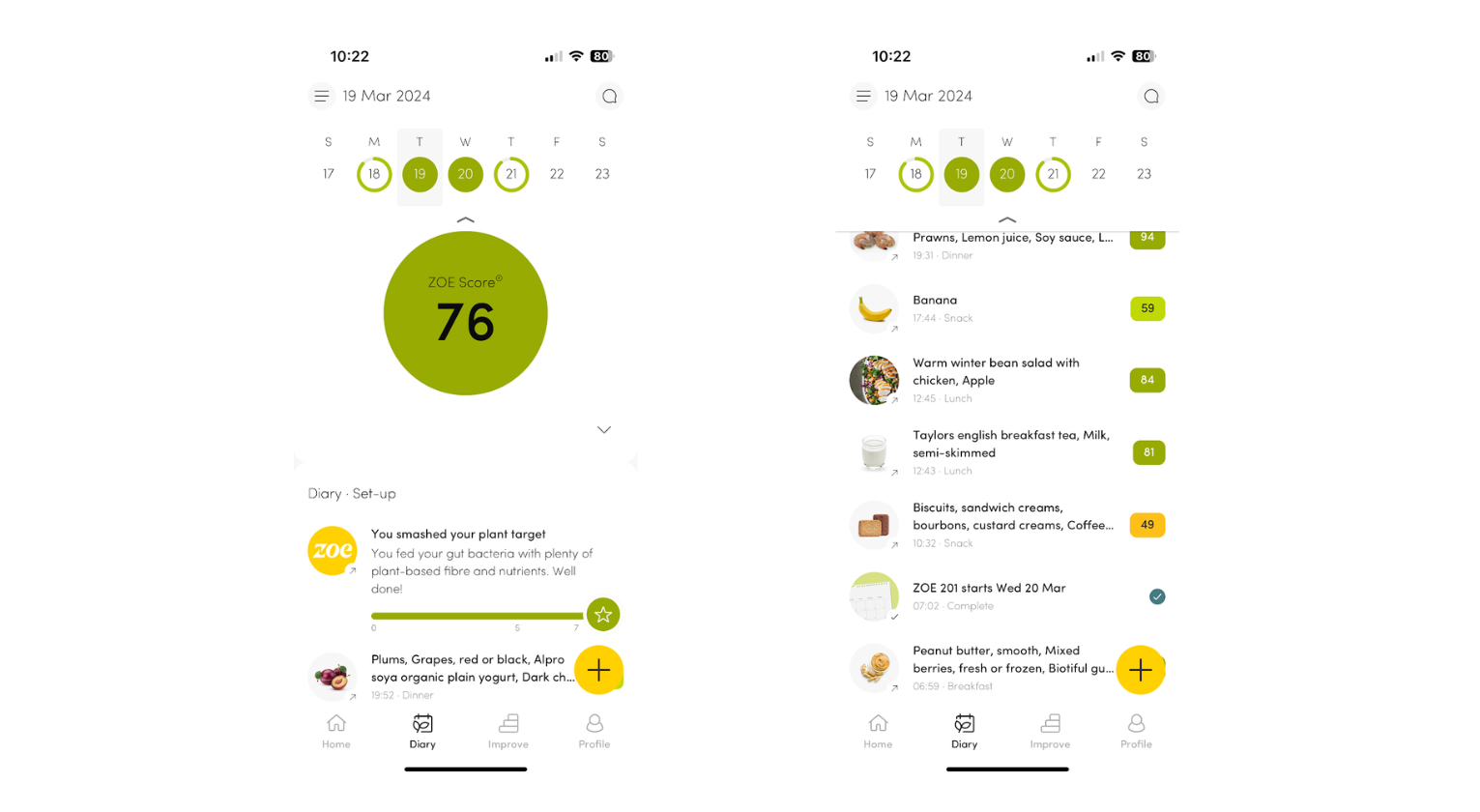
I also really enjoyed following personalised recipes, especially as I knew they'd leave me feeling light and energised. It was also nice being able to log a meal as a whole, instead of having to break the ingredients down to get the nutrients information. I was enjoying it so much that I even decided to overlook the 'drink responsibly' notification I received after logging a glass of wine. It's all about balance, people.
It was also nice not having to worry about calorie counting, focusing on lifestyle changes instead of food limitations. This is particularly refreshing take on the wellness and diet industry, and I think there are a lot of programmes that could follow Zoe's lead on this. There is still a large focus on weighing foods, but I don't believe this is necessarily a bad thing.
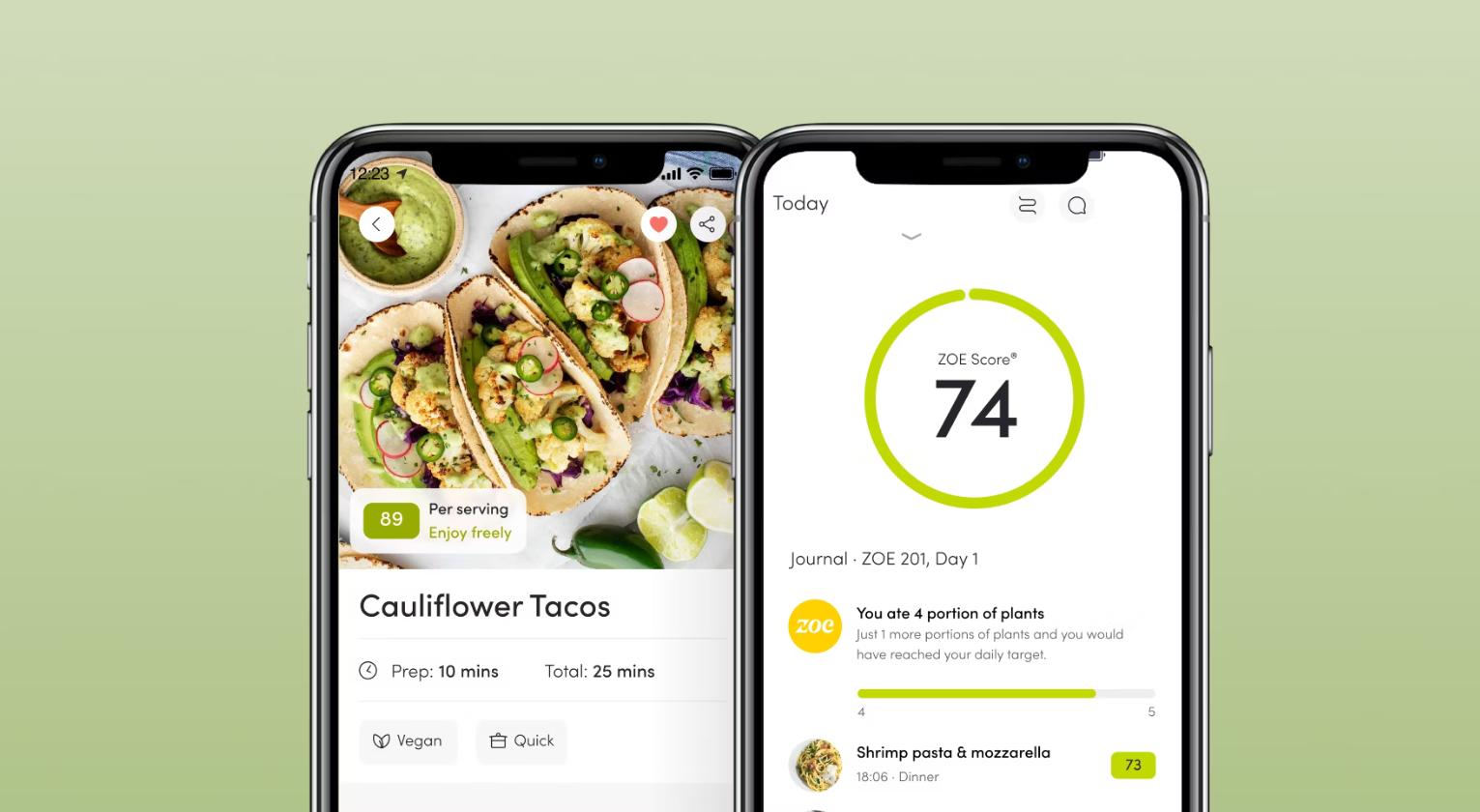
Verdict
Overall, I was really impressed with the Zoe nutrition programme, and found it to be a detailed pathway of exploring what worked for my body and why. The testing was comprehensive but easy to follow, and it was fascinating to explore the unique influences on my digestion and blood sugar levels. There was a few particular points surrounding the testing that could be improved, such as the brand's choice of CGM and participation limitations for those with certain health issues. However, there's room for Zoe to build on this and enhance the programme in the future
For me, the Zoe app was the best part of the whole experience. The detail it provided in its nutrition lessons, food choice tips and recipes was outstanding, and it explains why the entire programme is priced so high.
I would be tempted to recommend the Zoe programme to those who are looking for an entire lifestyle change. Most of my results came back as good or excellent, meaning I didn't receive as much advice surrounding my blood sugar and blood fat levels as expected. However, I did receive strong insights in other areas, so it completely depends on how your testing goes.

Lizzie is T3's Home Living Staff Writer, covering the latest in smart home, lifestyle and beauty tech. From skincare gadgets to vacuum cleaners, she's your go-to for trends and top recommendations.
When not writing, Lizzie enjoys mooching around Bath, spending time with loved ones, or testing her review units – often during an enthusiastic cleaning spree!